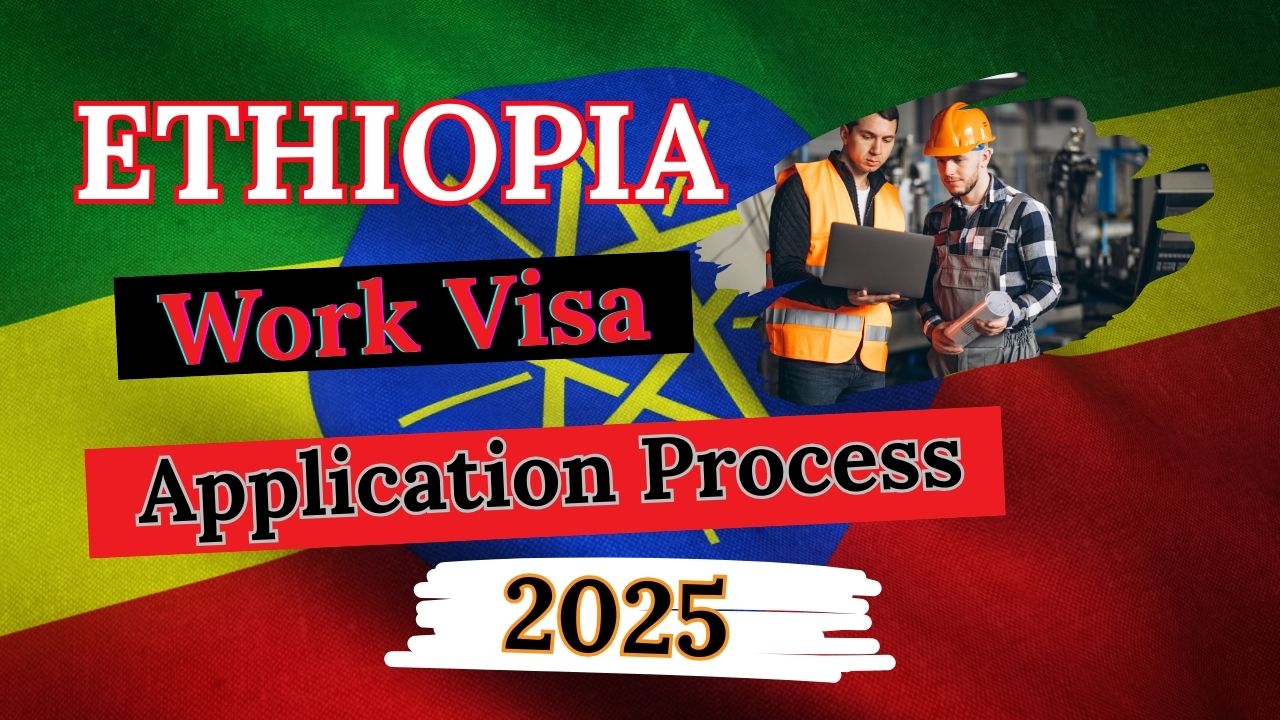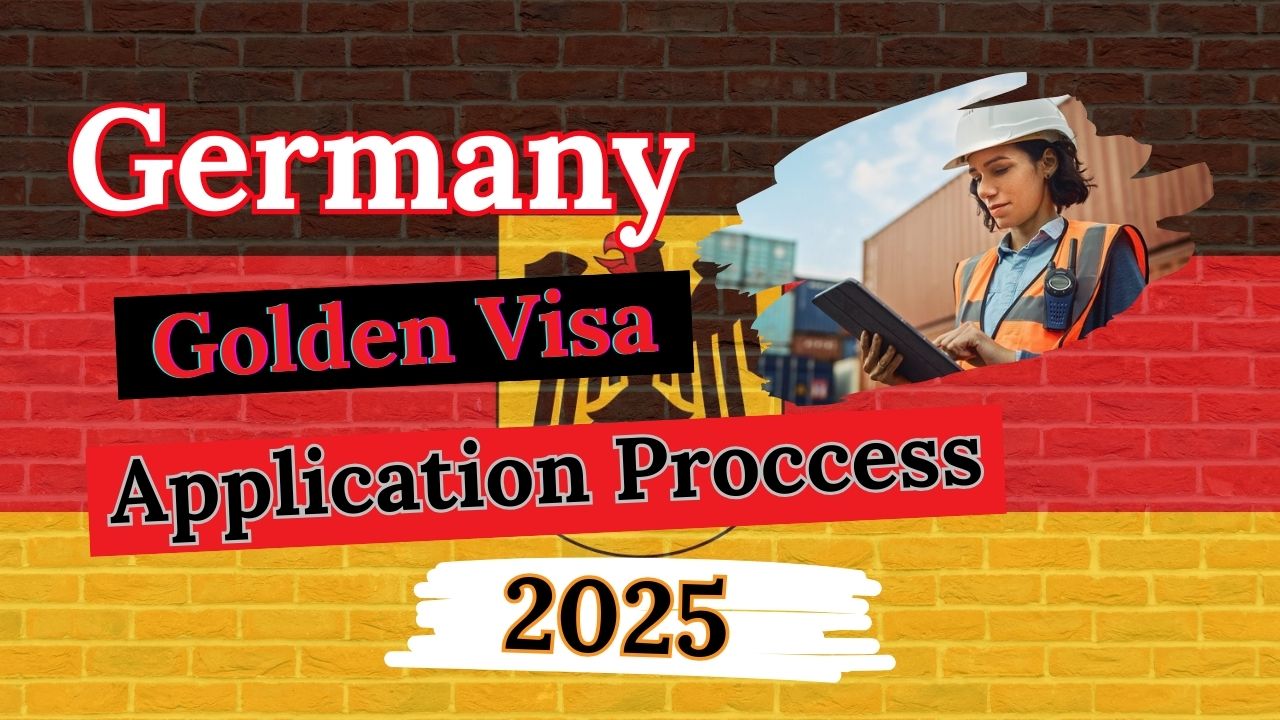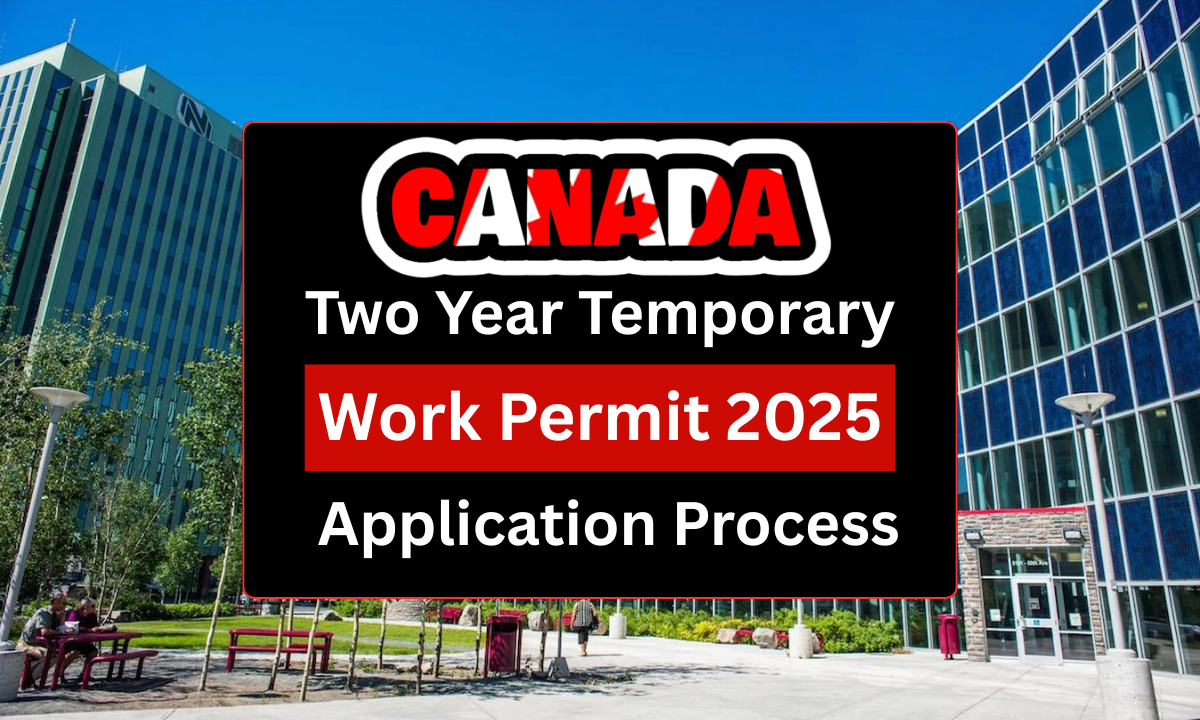Ethiopia, located in the Horn of Africa, has become an attractive destination for professionals, businesses, and investors. With steady economic growth, expanding infrastructure projects, and development opportunities, the country presents an appealing landscape for skilled expatriates. As the host of the African Union in Addis Ababa, Ethiopia also attracts international organizations and foreign talent seeking employment.
If you are planning to relocate to Ethiopia for work, a work visa is mandatory. This visa allows foreigners to live and work legally in Ethiopia for a specified duration. Understanding the visa requirements, application process, and eligibility criteria is crucial to avoid delays or rejection.
This guide provides a comprehensive step-by-step roadmap for obtaining an Ethiopia work visa in 2025.
What is an Ethiopia Work Visa?
An Ethiopia work visa is issued to foreign nationals who intend to work for private companies, governmental institutions, NGOs, or international organizations in Ethiopia. The visa grants permission to reside and work legally within the country.
Important: Working in Ethiopia without the appropriate visa is considered illegal and may result in fines, deportation, or legal action.
Types of Ethiopia Work Visas
Ethiopia offers different types of work visas based on employment type and duration:
- Short-Term Work Visa
- Issued for temporary contracts or short-term assignments.
- Valid for a few months depending on the employment contract.
- Common for consultants, temporary projects, or short-term contracts.
- Long-Term Work Visa
- Issued for employees with extended contracts.
- Usually valid for 12 months or longer and can be renewed annually.
- Suitable for expatriates employed by companies, NGOs, or international organizations.
- NGO / Development Work Visa
- Designed for individuals working in humanitarian organizations, NGOs, or development projects.
- Requires official documentation from the sponsoring organization operating in Ethiopia.
- Diplomatic / International Organization Visa
- For foreign nationals employed by embassies, consulates, the African Union, or United Nations offices in Ethiopia.
- Issued based on diplomatic and international employment documentation.
Eligibility Criteria for an Ethiopian Work Visa 2025
To be eligible for a work visa in Ethiopia, applicants must meet the following criteria:
- Valid Employment Offer: A confirmed job offer or signed employment contract from a registered Ethiopian company, institution, or NGO.
- Employer Sponsorship: Your employer must sponsor your visa and initiate the work permit application with the Ethiopian immigration authorities.
- Skills & Qualifications: Applicants must possess the necessary qualifications, skills, or experience relevant to the position.
- Health & Character: Candidates must be medically fit and free from contagious diseases. A medical certificate and police clearance may be required.
- Compliance with Immigration Laws: Applicants should not have overstayed visas or violated immigration laws in Ethiopia or other countries.
Required Documents for Ethiopia Work Visa 2025
Ensure all documents are prepared, accurate, and attested where necessary:
- Completed visa application form (accurate and signed).
- Valid passport (minimum 6 months validity with blank pages).
- Recent passport-sized photos (meeting visa specifications).
- Employment contract or offer letter (signed by both employer and employee).
- Employer’s business license or registration certificate in Ethiopia.
- Work permit approval letter from the Ministry of Labor or relevant authority.
- Medical certificate confirming fitness for work.
- Police clearance certificates from home country (criminal record check).
- Proof of accommodation in Ethiopia (rental agreement, hotel booking, or company-provided housing).
- Visa fee payment receipt.
Step-by-Step Ethiopia Work Visa Application Process 2025
Step 1: Secure Employment in Ethiopia
- Obtain a formal job offer from a registered Ethiopian company, NGO, or organization.
Step 2: Employer Initiates Work Permit Application
- The Ethiopian employer applies for your work permit with the Ministry of Labor and Skills Development.
- They provide all necessary company documentation and employment details.
Step 3: Prepare Your Visa Documents
- Gather your passport, photos, employment letter, medical certificates, and other supporting documents.
- Ensure translations into English and notarization if required.
Step 4: Submit Visa Application
- Submit your completed application and supporting documents at the nearest Ethiopian embassy or consulate.
- Some countries may offer e-visa submission, but in most cases, physical embassy submission is required.
Step 5: Pay Visa Fees
- Pay the applicable fees depending on the type and duration of your visa.
Step 6: Attend Interview (if required)
- Some applicants may be called for an interview at the Ethiopian embassy. Questions may cover your employment position, qualifications, and purpose of travel.
Step 7: Visa Processing & Approval
- The Ethiopian authorities review your application. Processing typically takes 2–6 weeks but may vary depending on document verification and embassy workload.
Step 8: Receive Work Visa & Travel to Ethiopia
- Upon approval, your visa will be stamped in your passport.
- Travel to Ethiopia and present the visa at the port of entry.
Step 9: Apply for Residence Permit (if relevant)
- For long-term stays, register with local authorities in Ethiopia to obtain a residence permit.
Processing Time
- Typical processing time: 2–6 weeks.
- Delays can occur if documents are incomplete, missing, or require further verification.
Renewal & Validity
- Short-term work visa: Valid for a few months depending on the contract.
- Long-term work visa: Usually valid for one year and renewable annually.
- Renewal applications should be submitted before visa expiry to avoid overstaying.
Tips for a Successful Ethiopia Work Visa Application
- Ensure your employment contract is genuine and from a registered company.
- Submit all documents accurately to avoid rejection.
- Keep extra copies of all documents.
- Apply well in advance of your intended travel date.
- Maintain communication with your Ethiopian employer, as they assist in work permit and visa processing.
Working and Living in Ethiopia
- Cost of living: Relatively low compared to many African countries; varies by city and urban/rural location.
- Accommodation: Options range from private apartments to company-provided housing, especially in Addis Ababa.
- Healthcare: Available in public hospitals; many expatriates prefer private clinics.
- Language: Amharic is the official language, but English is widely used in business and international organizations.
FAQ’s
1. How long does it take to get an Ethiopian work visa?
Processing usually takes 2–6 weeks depending on embassy verification and document completeness.
2. Can I apply without a job offer?
No, a confirmed employment offer and company sponsorship are required to apply.
3. How long is the visa valid?
Short-term visas are valid for several months; long-term visas are usually valid for 12 months.
4. Can I extend my Ethiopian work visa?
Yes, long-term visas can be extended annually with employer assistance.
Conclusion
Obtaining an Ethiopian work visa in 2025 requires careful planning, complete documentation, and coordination between the applicant and employer. Following the proper steps ensures a smooth process and prevents delays. Ethiopia offers promising opportunities for professionals across sectors such as construction, education, agriculture, healthcare, and international development. With the right preparation, relocating and working in Ethiopia can be a rewarding experience, enabling expatriates to contribute to the country’s growing economy while enjoying a unique cultural environment.



















